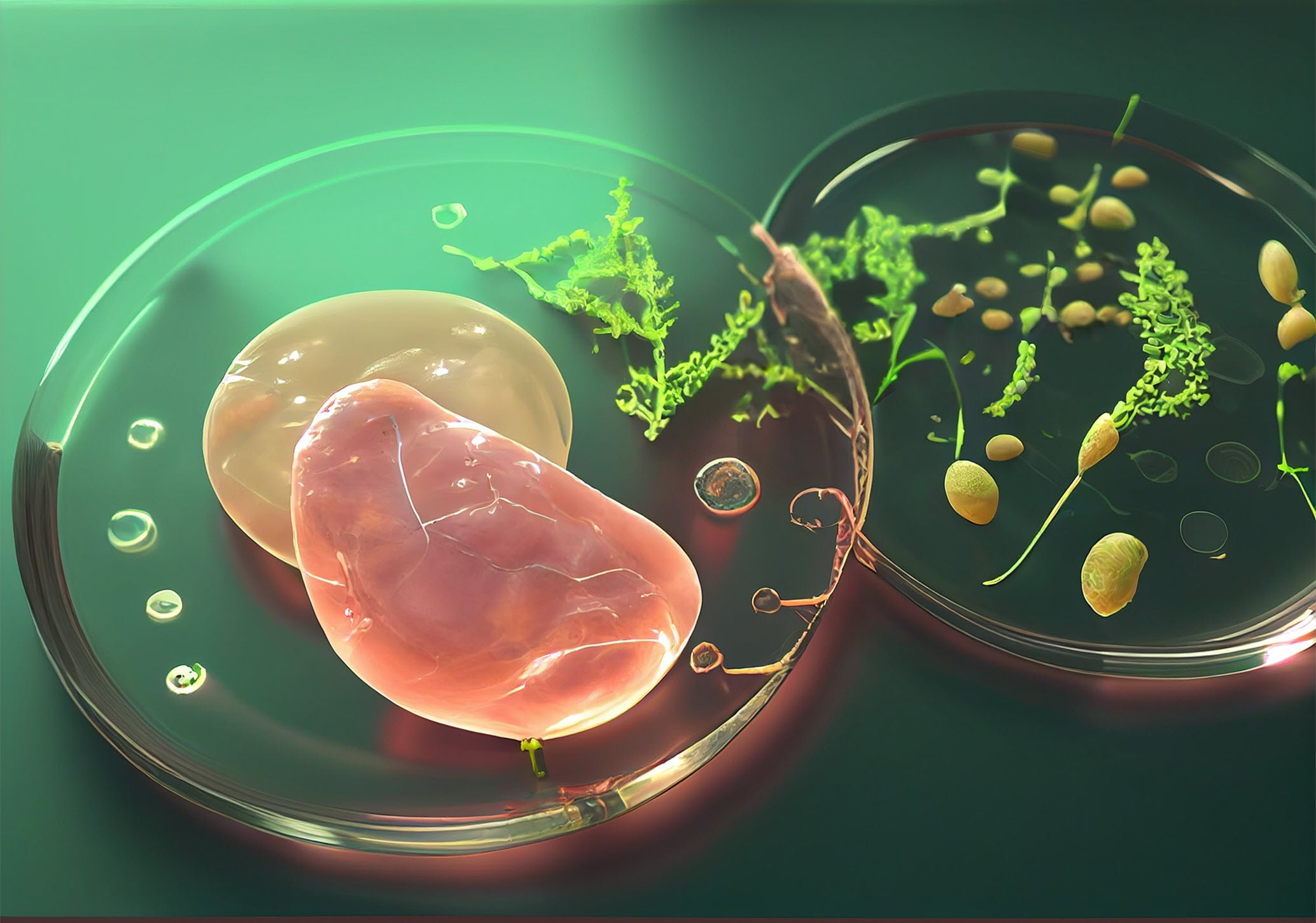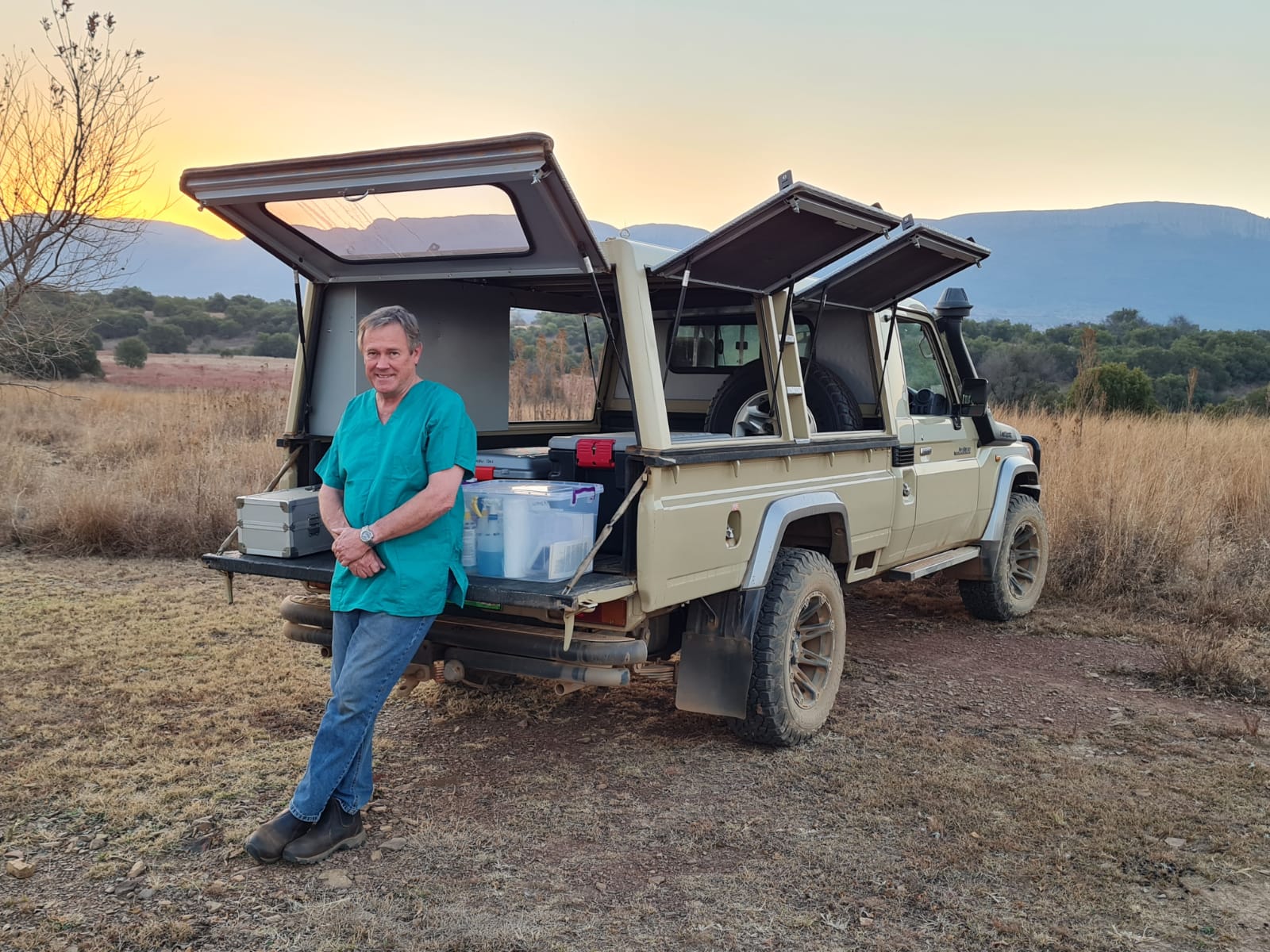The rise of cultivated meat

How will this new technology affect farmers and veterinary professionals?
Cultivated meat – meat products grown from cells in a laboratory – might sound like science fiction, but it’s fast becoming a reality. Although it’s unlikely that we’ll see lab-grown meat cuts on our supermarket shelves within the next decade or so, this new biotechnology does raise several questions for the veterinary industry, as well as for livestock farmers.
The South African Veterinary Council (SAVC) continually monitors scientific and technological developments that could affect our veterinary and para-veterinary professionals with interest.
While the SAVC, as a regulatory body, does not hold a position on the ethics or economics of cultivated meat, it believes sharing information about these emerging technologies will help enhance and add substance to the conversations around them.
Dr Paul Bartels, the CEO and founder of the Mogale Meat Company, is also a wildlife veterinarian and therefore holds perspectives on the issue from both sides. He believes this innovative technology will complement rather than replace existing farming and veterinary practices and will give rise to new economic opportunities.
The SAVC asked Dr Bartels some questions to understand better the implications of the rise of cultivated meat:
Q: What is cultivated meat?
A: Cultivated meat is bio-identical to conventional meat, as it is cultivated directly from fat, connective tissue and muscle cells taken from an animal and grown in a bioreactor (laboratory apparatus used for growing organisms under controlled conditions).
Q: What are the benefits of cultivated meat?
A: There are a number of important benefits:
Only the desired cuts of meat are produced, with the potential to vary the fat quantity and quality as healthier options for consumers.
It will reduce the harmful climate impacts of our current food system. (Livestock produce more greenhouse gases than all the transport in the world combined.)
It will decrease the risk of zoonotic disease and antimicrobial (antibiotic) resistance.
It has the potential to feed more people with fewer resources.
It requires 95 per cent less land and water to cultivate than conventional livestock farming.
It will revive export opportunities for fresh meat that were lost due to disease outbreaks.
It will yield new economic and employment opportunities, with people trained and up-skilled in various science and engineering fields.
Q: What are the implications for farmers and veterinary and para-veterinary professionals?
A: Intensive meat production is problematic – from requiring substantial water use to clearing millions of square kilometres of natural habitat for producing fodder crops. It also results in rising animal and zoonotic disease outbreaks, requiring mass cullings, as well as antibiotic resistance.
South Africa has world-class livestock farmers, veterinary and para-veterinary professionals, and meat production systems that serve its people, as well as the meat export market. Cultivated meat has the potential to increase meat production without having to further transform natural habitats into fodder crops for intensive farming. Cultivated meat will protect our abundant biodiversity and address many of the United Nations’ Sustainable Development Goals.
There will not be any disruption to current livestock farming for many decades to come. More people need more meat and it is that increased demand that can be met through cultivated meat. This means livestock and wildlife farming will continue with support from related industries, including the veterinary and para-veterinary professions.
Q: Will lab-grown meat eventually be an affordable food option for South African consumers?
A: Cultivated meat will most likely only become commercially available in the next 10 years in South Africa, as it largely depends on regulatory approvals and the cost of production.
Current production costs are very high – although, as with any new technology, as scale-up takes place and product uptake increases, costs will drop.
Q: What opportunities does this technology offer for livestock veterinary and para-veterinary professionals?
A: This new biotechnology industry will not take away any of the current livestock-animal health and meat-hygiene responsibilities. It will, in fact, open up new opportunities in multiple science areas.
Veterinary science research and development will ‘converge’ with other scientific disciplines, including biotechnology, biochemistry, chemistry, metabolomics (the study of small molecules), bioengineering, tissue engineering, process engineering, crop science, animal science, nature conservation, nutrition and meat and food science.
Here, the veterinary and para-veterinary professions are destined to play a key role in this new and exciting high-tech approach to food security.
I believe there will be some initial resistance to the idea of this new industry. However, with adequate education and knowledge transfer, I hope people will come to realise the tremendous opportunities and benefits that this exciting food industry development presents.
To find out more about Dr Paul Bartels, the CEO and founder of the Mogale Meat Company, a cultivated meat company, visit their website: https://mogalemeat.com/
“There’s a big hype, there is a race happening,” said Mercedes Vila, co-founder of the Spanish company Biotech Foods, “In the past few months, new players have appeared; we’ve counted almost 20 companies in Europe alone, all of them of very recent creations.

Editor’s comment and invitation.
Whilst cultured meat may show great potential to address future food sustainability and nutritional security, one does have to wonder if complete replacement of conventional meat with cultured meat may have an adverse long-term impact on agriculture-based economies.
Unlike conventional meat, the cultured meat is considered humane and is believed to appease the sentiments of the vegan community and animal lovers. This technology is still a few years out in terms of providing an economically viable product, it does, however, promise to provide a pathogen-free, ethical and eco-savvy meat product.
We cannot ignore many techno-social, economic and other very real challenges that may neither yet have been fully considered nor addressed and will need to be resolved from the Petri dish of the lab to the plate of the consumer. Notwithstanding the economics and the technology challenges associated with cultivated meat, public acceptance is going to be the most critical success factor in cultured meat emerging as a food of choice. Ed
We invite you to share your thoughts on cultivated meat.
email: [email protected]
